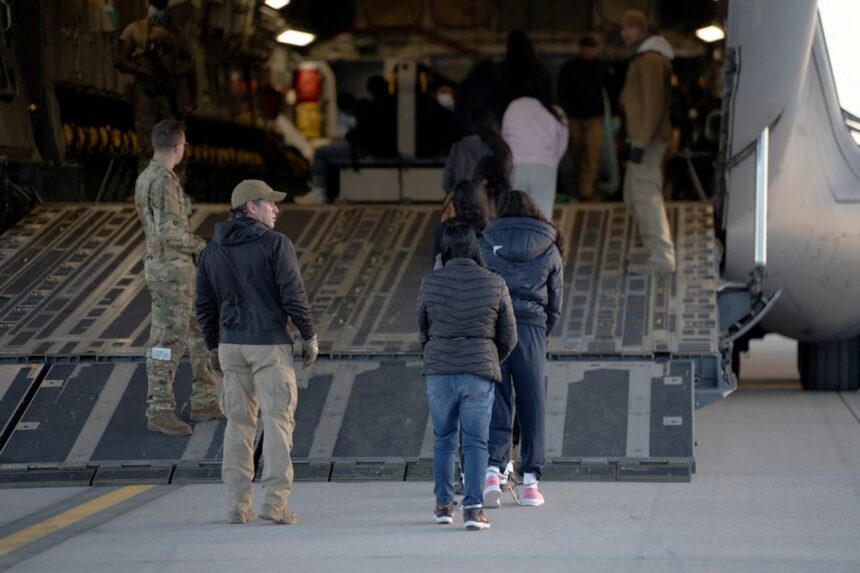Uganda has become the latest African nation to publicly reject the U.S. deportation scheme.
This comes as the Ugandan government maintained that it is not ready to accept deportees from the U.S who are not its citizens.
This development follows reports that the administration of U.S. President Donald Trump has been negotiating with nations across Africa and beyond to offload migrants, particularly those with criminal records, to third countries.
According to reports, Uganda, alongside Honduras, had reached deportation agreements with the United States authorities.
The report claimed that Honduras was purportedly slated to receive hundreds of deported individuals from Spanish-speaking nations, while Uganda purpotedly agreed to accept an unspecified number of African and Asian migrants who had applied for asylum on the US-Mexico border.
However, the Ugandan government has denied the report, claiming it has accepted the U.S. deportation scheme.
Okello Oryem, Uganda’s State Minister for Foreign Affairs maintained that the country doesn’t have infrastructural facilities to accept deportees from other countries.
Oryem stated: “To the best of my knowledge, we have not reached such an agreement.
“We do not have the facilities and infrastructure to accommodate such illegal immigrants in Uganda.”
Pan-Atlantic Kompass reports this is the first time an African country has distanced itself from the U.S. deportation scheme.
In July, Eswatini denied the U.S claim that deported ex-convicts who could not return to their own countries would be placed in the kingdom.
Instead, Eswatini stated that it was collaborating with the U.S. and the International Organization for Migration (IOM) to guarantee that deportees were finally returned to their respective countries.
Also, the Nigerian government had rejected deportees from the U.S.
Nigeria’s Foreign Minister Yusuf Tuggar recently emphasized this point, stating, “We have enough problems of our own,” and rejecting pressure to take in Venezuelan deportees.
Recall also that Trump had introduced a Policy that allows the U.S. Department of Homeland Security to deport migrants to third-party nations, even if those countries are not their home countries.
The deportation policy gained traction in June when the U.S. Supreme Court decided in favor of the Trump administration, giving it expanded authority to deport migrants without allowing them to demonstrate that they suffer persecution or danger in their home countries.





